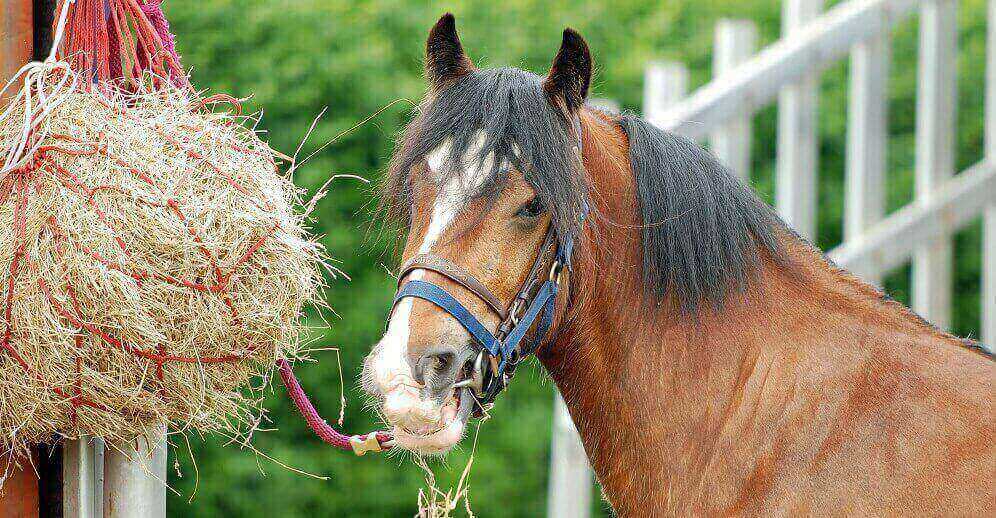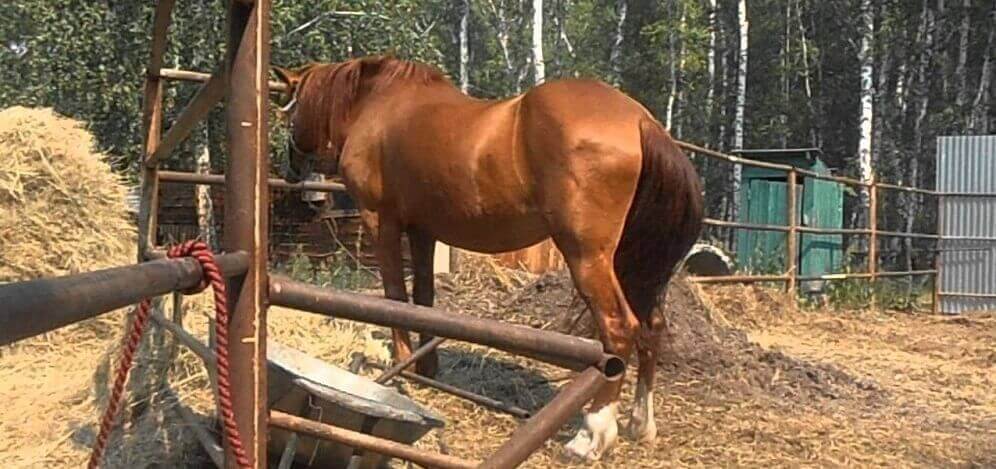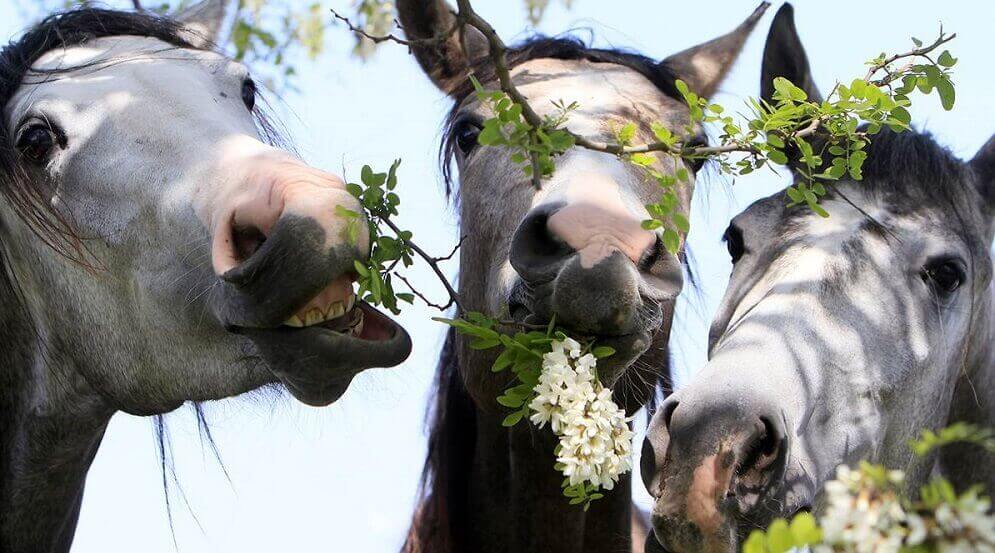Horse nutrition must be balanced regarding the amount of vitamins, trace elements, and other necessary components.
Feeding your horse should be done several times a day.
The feed should be consistent and of good quality. If it is suddenly necessary to change the food, it should be done delicately not to harm the sensitive digestive system. Violations of diet and rest can harm the animal’s health, especially the heart. If the horse is used as a working horse (e.g., on a farm), it should be fed in the morning so that it can rest a little before the start of the working day.

So, what do they feed the horses?
What the horses’ nutrition should consist of:
- – grass
- – hay
- – cereals
- – combined mixtures
- – salts
- – water.
Grass
The horse is a herbivore, so its main diet should be grass. The horse receives all the nutrients it needs if it grazes on good, ecologically clean pastures. However, deteriorating ecological conditions and soil properties have a terrible effect on the nutritional properties of grass, so its diet should necessarily include a combined feed. The digestive process in horses is more thorough than in cows, so the horse should not be loaded after a meal.

Hay
Hay – plants harvested in summer and thoroughly dried. The average horse eats 14-16 kg per day. Healthy, bright green grass that is free of weeds should be harvested. It is essential to store hay correctly in a dry, well-ventilated room. Under no circumstances should moldy hay be fed to horses, as the animal may become ill.
Combined feeds contain grain, bran, and vitamin supplements. They are suitable for feeding weakened animals.

Cereals
Grains that should be included in the horse’s diet are oats or corn. Feeding should be done in moderation and not overfeeding.
Salts
There are different kinds of salts, distinguished by the additives they contain. The most common are table salt, iodine, and magnesium.

Water
Water is essential for horses, and dehydration can be fatal. The horse should be fed at least twice daily, and the water should be clean and impurities-free.




